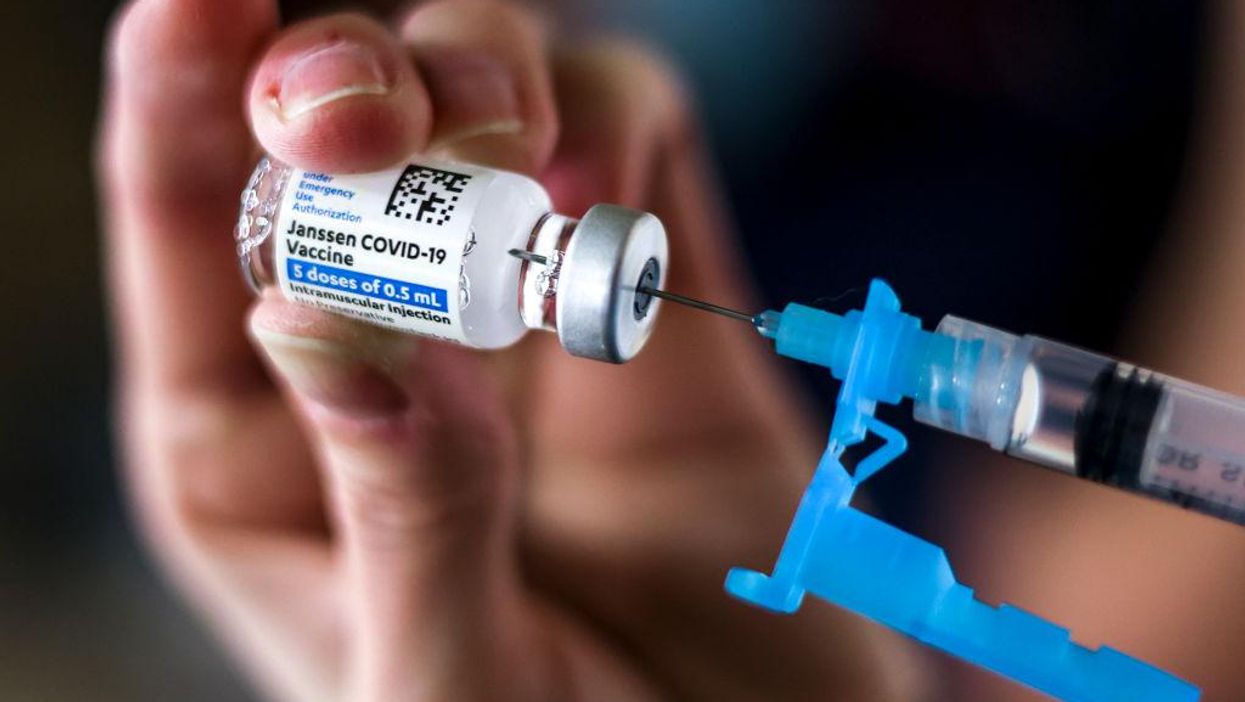
Michael Ciaglo/Getty Images

Editor's note: The headline and URL of this story have been updated over concerns that Forbes' original comments were being used to mislead people.
Also, in order to avoid any potential inaccuracies, we removed our previous statement of “So the old headline was accurate. COVID vaccines do alter your DNA — indirectly, by triggering the body's natural response to fight off disease” from the story.
A Forbes article that takes aim at "anti-vaxxers" for claiming that the COVID-19 vaccine "changes your DNA" — arguing that technically it does and that's a good thing — had its headline changed without explanation to emphasize that the vaccines "don't alter your DNA."
In a column published Monday that was originally titled, "Yes, The Vaccine Changes Your DNA. A Tiny Bit. That’s A Good Thing," Steven Salzberg explains how a person's immune system slightly alters their DNA after taking any vaccine, in the same way the body responds to any infection, like the common cold. Salzberg is a computational biologist and computer scientist with Johns Hopkins University and co-founder of the influenza virus sequencing project.
However, sometime after publication, the article's headline was changed to, "Covid Vaccines Don’t Alter Your DNA – They Help Choose Cells To Strengthen Your Immune Response."
No editor's note or other explanation for the change was given by Forbes. While the original headline summarized Salzberg's argument, the new headline appears to slightly contradict what he wrote.
Salzberg wrote the article in response to what he called "one of the common tropes" about the vaccines popularized by those opposed to taking them: That the vaccines can change or interact with your DNA.
The CDC lists this claim as a
common "myth" about the vaccines, explaining:
COVID-19 vaccines do not change or interact with your DNA in any way. Both mRNA and viral vector COVID-19 vaccines deliver instructions (genetic material) to our cells to start building protection against the virus that causes COVID-19. However, the material never enters the nucleus of the cell, which is where our DNA is kept.
Salzberg explained that technically the CDC "got it wrong" in its attempt to give a simple refutation of the DNA claim. He described how the body's immune system responds to pathogens like the SARS-CoV-2 virus, selecting antibodies that can recognize the pathogen, bind to it, and destroy it.
"The way it does this is really rather extraordinary: many little pieces of your DNA are cut and pasted together, in millions of combinations, each making a different antibody. Eventually, one of these antibodies 'recognizes' the pathogen (by binding to it)," Salzberg wrote.
Continuing, he explained that successful antibodies are "remembered" by the immune system as special cells — called B-cells — that have slightly altered DNA.
"The DNA in these B-cells encodes just the right antibody to recognize the invader–the Covid-19 virus, that is. Once you recover from the infection, some of those immune cells (B-cells and T-cells–it’s complicated) persist in your lymph nodes, constantly looking for any reappearance of the virus," Salzberg wrote.
He further explained that the altered DNA in these B-cells is a normal response to recovering from infection or to receiving a vaccine.
The DNA in these special “memory” B-cells is a little bit different from the DNA in all of your other cells, and it’s different because of the vaccine. (Or to be more precise, as an immunologist colleague explained to me: the vaccine doesn’t change any DNA, even in your immune cells, but it causes the proliferation of certain immune cells that have have already undergone genetic rearrangement.) The vaccine itself doesn't stay around, but it "shows" the immune system a few copies of the spike protein from SARS-CoV-2, the Covid-19 virus, and the immune system remembers. And, I should note, a similar change to your DNA happens if you’re infected by the Covid-19 virus itself.
But B-cells are just a tiny, tiny portion of your body. Every other cell type, from skin to heart to lungs to brain, is completely unaffected by the vaccine. And if we didn’t have any way of “remembering” how to fight off infections, then we’d never become immune to anything, in which case the human race would quickly go extinct.
The point is this: COVID-19 vaccines don't directly alter your DNA, but they do trigger an immune response that creates antibodies and B-cells with altered DNA to fight off infection. "The only change is in the DNA of a tiny number of immune cells, which hang around as guardians against future infections. And that's a good thing," Salzberg wrote.
It's not harmful; in fact, it helps people by reducing the chance that you'll become seriously ill from COVID-19.
Why the need for a change?